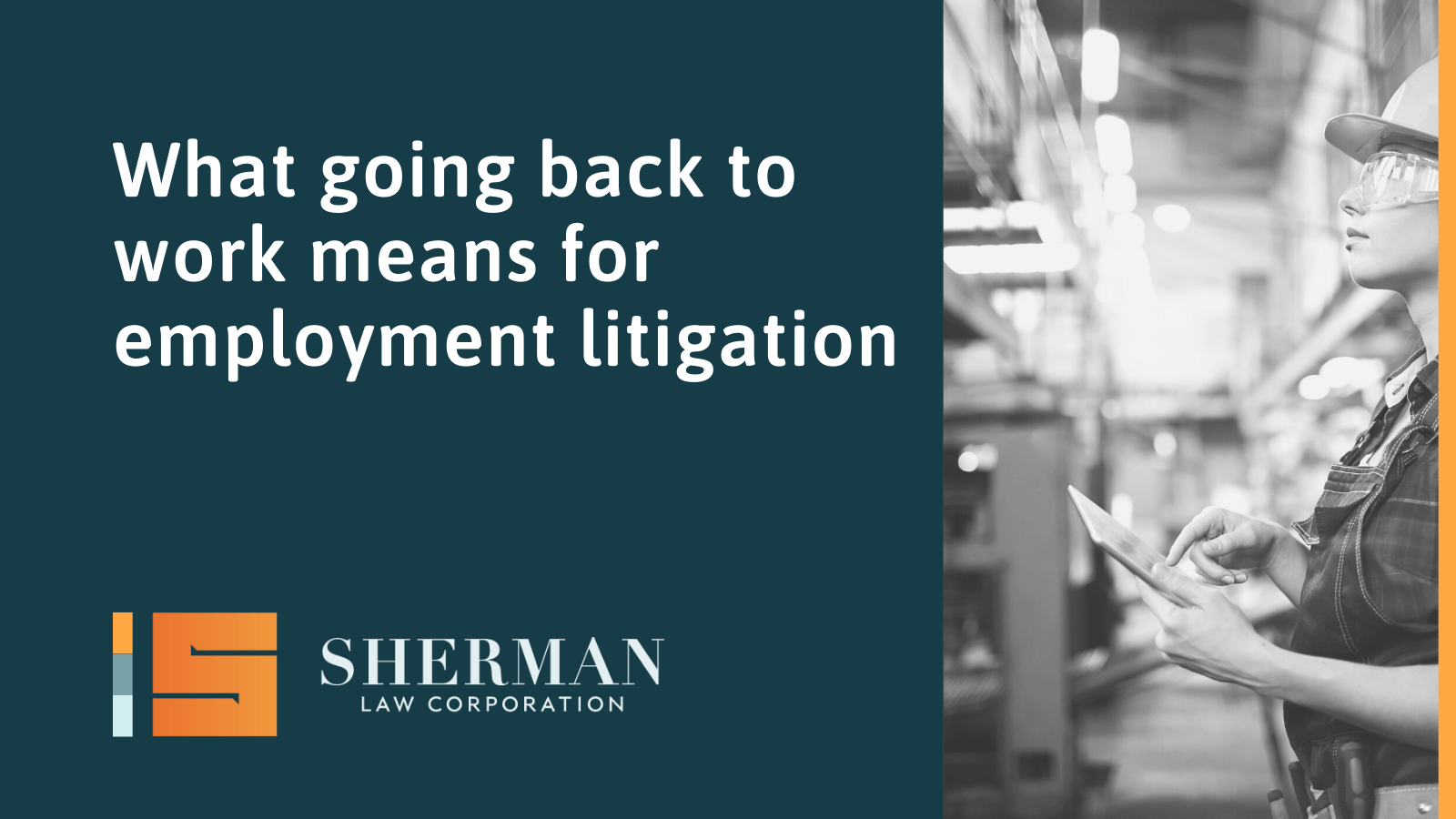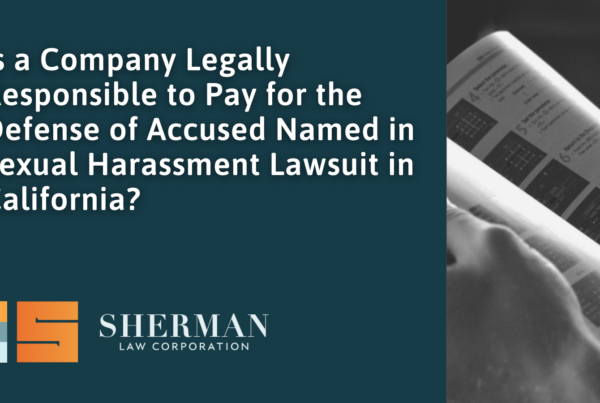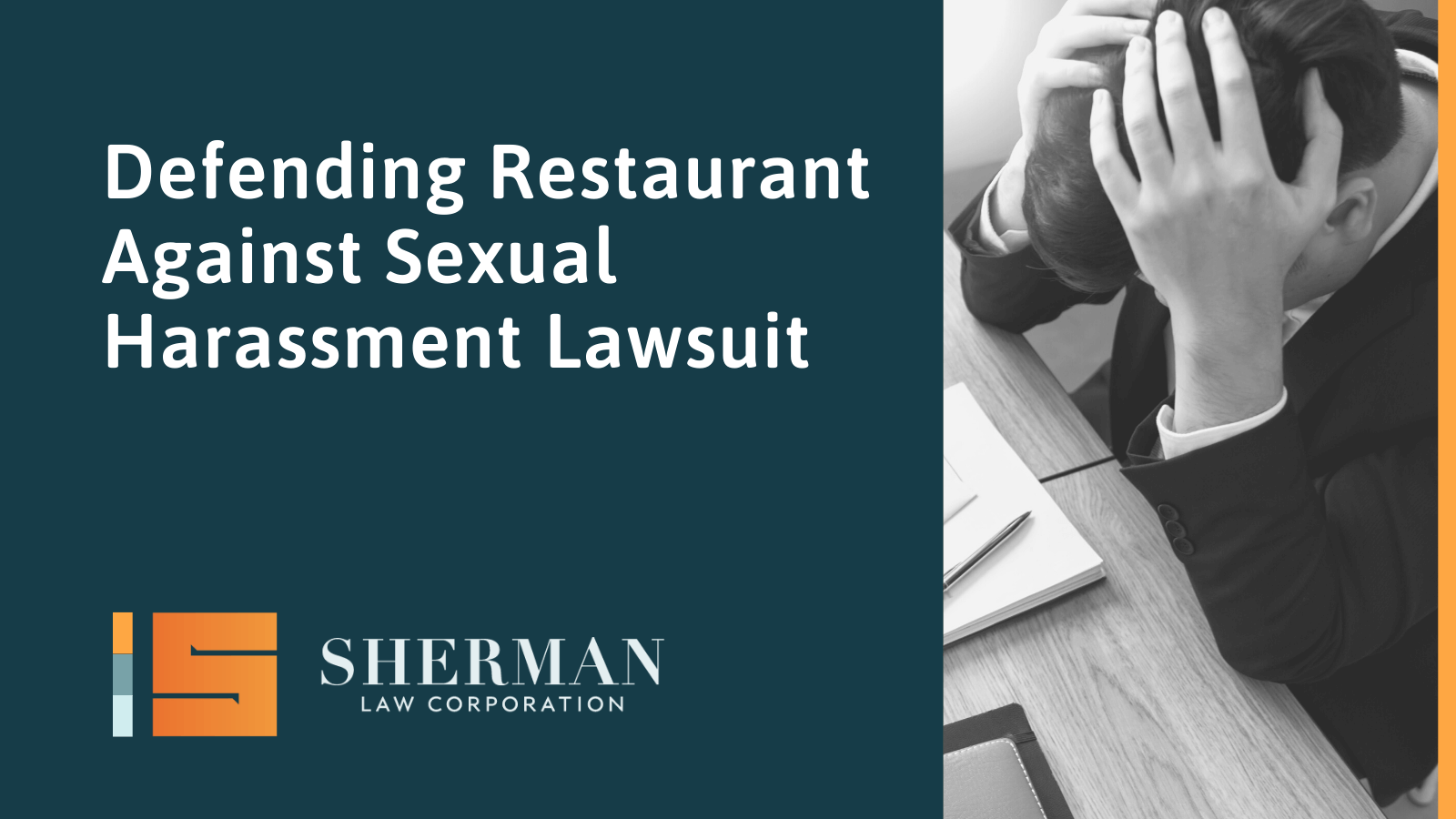
As the number of COVID-19 infections begin to decrease, demands for the reopening of businesses across the country have been on the rise.
A handful of states, including Georgia, Minnesota, Ohio, South Carolina, and Alaska, among others, have begun to ease stay-at-home restrictions and allow certain businesses to open their doors again. Even California has announced a plan for reopening, although it may take up to a year to complete.
But experts believe that as businesses reopen, so does the possibility for an uptick in a wave of lawsuits against employers.
What types of lawsuits should employers be preparing for?
Employment attorneys and specialists around the U.S. project that many employers will be facing lawsuits as their employees return to work.
Potential lawsuits include:
- Personal injury claims
- Wrongful death claims
- Discrimination claims
- Compensation disputes
- Benefits disputes
Personal Injury and Wrongful Death
People who have suffered health consequences or lost a loved one to the coronavirus may claim that they contracted the virus while working in unsafe conditions — even though pinpointing the exact location of infection is near impossible.
But claimants know that these types of accusations are difficult and expensive for employers to defend, as well. In all likelihood, the claimants in these types of cases are hoping for a settlement, instead.
Discrimination, Compensation, and Benefits Disputes
Many employees across the country were laid off or furloughed due to the spread of the virus. But as employers start to open and reintegrate these employees into the workspace, they may meet some difficulties.
Employees who were laid off have to be treated as new hires, and the new hire policies for many can include background checks and drug tests. Employers need to be thinking ahead if the results to these tests come back negative and the former employees can no longer work for the company.
Similarly, furloughed employees can return to work as normal, whereas laid off employees will lose any tenure-related benefits, paid time off, etc., that they gained working in the past. (Although some company policies and even some state laws do allow laid off employees to regain these benefits if they are rehired within a certain amount of time.)
This may even lead to discrimination claims, as some employees will be returning to work as normal before others. Employers must also find a way to avoid age discrimination when allowing their employees back to work that still manages to keep a safe working environment for all.
Other Issues
Employers should also be prepared to see violation allegations in regards to the Families First Coronavirus Response Act (FFCRA) if employees seeking leave misinterpret the law. For this reason, employers should do their best to stay up-to-date with the laws and regulations of this Act.
Some help from business advocates
While employers should be prepared to face potential litigation, business advocates nationwide are trying to ensure these allegations will be kept to a minimum.
The U.S. Chamber of Commerce, the National Association of Manufacturers, the National Federation of Independent Business, and even top economic advisor Larry Kudlow are all pushing for potential legislation to protect employers from frivolous, expensive lawsuits.
What can employers do?
As always, employers should do their best to create a safe and healthy working environment.
It’s difficult to keep track of all the changing guidance and information, but do your best to create return to work policies based on official suggestions from local, state, federal, and even global authorities.
Creating a policy that follows these guidelines and following that policy when issues arise is the best way to avoid and defend and claims that might come your way later on.
Contact the Sherman Law Corporation Today
At the Sherman Law Corporation, we know that workplace disputes are more complicated than they appear at first glance. That’s why we work with employers to eradicate frivolous claims by opportunistic employees. If you have concerns about reopening your business, contact Sherman Law today.




